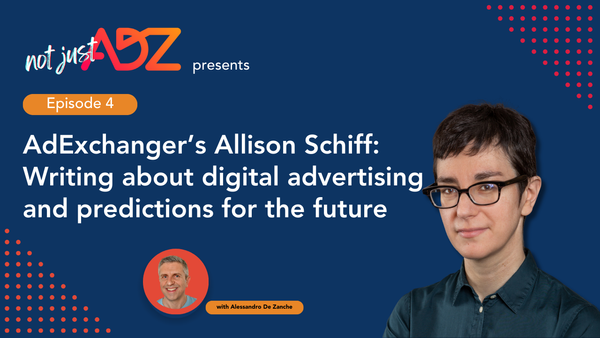Media Owners Revolutionize Their Data Strategies While Facing New Risks Along The Way | AdExchanger
Are we witnessing a renaissance in media owners’ data and audience strategies?

Are we witnessing a renaissance in media owners’ data and audience strategies?
It feels like yesterday when many media brands believed having a data strategy meant sprinkling their inventory with ambiguously-sourced third-party data. That data often provided the ecosystem with little quality and individual publishers with no differentiation whatsoever.
But, following privacy regulations around the world like the EU’s GDPR and the unraveling of online identifiers, forced media owners, not without hesitations and delays, to rethink these initiatives.
The first-party data renaissance
Today there is a new phase of data ownership within media companies, as third-party data goes extinct, and advertisers partner with media owners to collaborate around first-party data, identity and addressability. Consumer brands realize that relying on those with direct relationships with the audience is future proof, rather than adopting solutions which can become untenable and redundant overnight.
Across the whole spectrum, from TV to news publishers, a few media owners are rebuilding their first-party data and audience strategies from scratch and even reinventing themselves as data platforms, enriching and activating data for advertisers with a sophistication and a determination rarely seen previously. Building a new data strategy requires a closer collaboration and dialogue and can generate a virtuous cycle of improvements in different areas like targeting, data enrichment, audience insights, research, website/app personalization, content and/or product recommendation, email marketing, etc.
Ad tech tries to own publisher first-party data
The gap between the growing group of media brands stepping up their data and audience strategies and those who haven’t is widening and becoming a potential source of future issues, where ad tech companies insert themselves to bridge the gap by exploiting media owners’ first-party data.
A few weeks ago, a major ad tech company launched its own “contextual platform,” a technology that takes advantage of the environment built and owned by media owners around the content they create. But in the press release touting this new platform, the company never once mentioned a single instance of “media” or “publisher”, as if context was a magical phenomenon of self-creation.
Other ad tech platforms providing quality “first-party data” at scale are instead commoditizing first-party data the way they did with inventory in the programmatic open marketplace.
The widening difference in quality between top media owners with first-party data strategies and the rest will only increase, triggering other side effects. The larger group of less sophisticated publishers will find themselves entangled in a race to the bottom. Having missed out on the data renaissance, they will not be able to offer the quality advertising environments needed to capture the budgets of ambitious consumer brands.
And the floodgates of fraud, click baiting and misinformation could burst open.
Premium media brands must organize
For their own long term sustainability, media owners need a clear differentiation between quality media brands and the long tail. The media world must put to rest the contradiction of the programmatic open marketplace, where millions of low-quality sites and apps benefited from the presence of a few hundreds quality media owners, while the latter were prevented to thrive and differentiate themselves.
And quality media owners have another pressing need: they must, as a category, step up their presence and raise their voices.
In failing to act as one, media brands allow the conversations about third-party cookies in Chrome and the fate of Apple’s IDFA and IPT, to be defined as a confrontation between ad tech and tech giants. Media owners’ absence marginalizes their interests and their core rights of engagement with their own, consented audiences.
Ad tech in particular is using media owners as Trojan horses to hide their agendas. Apple, instead of engaging in a whack-a-mole game against individual ad tech circumventions, has created a blanket policy around the IDFA causing uncertainty and unwanted consequences for media owners, especially around privacy, identity and addressability.
But if the big media companies acted as a single ambassador of its own interests and audiences, instead of letting the ad tech community work to defend its own agendas, the results would be different for all the key industry pillars: the audience, the media owner, the advertiser and those ad tech companies which understand their role of enablers in service of their clients.
Rome wasn’t built in a day, though, and we are already seeing great progress for media owners. That progress must continue however to trigger exponential improvements.
Originally published at https://www.adexchanger.com on December 4, 2020.





